Piracy: Australian brands duped by the ad fraudsters driving global piracy
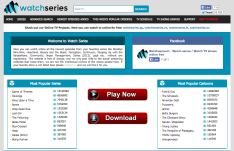 A number of major Australian advertisers have been found to be advertising on websites associated with Watchseries.lt, one of a plethora of global piracy portals funnelling consumers to illegal content and making millions from display advertising in the process.
A number of major Australian advertisers have been found to be advertising on websites associated with Watchseries.lt, one of a plethora of global piracy portals funnelling consumers to illegal content and making millions from display advertising in the process.
An investigation by Mumbrella has shown Allianz, American Express, Becks, Jenny Craig, Hotels Combined, Mazda, NSW Lotteries, Reckitt Benckiser and Virgin Australia are among the major brands to have been found to have advertisements on hosting websites associated with Watchseries such as Videoweed, Divx Stage and NovaMov, which are illegal hosting sites that each have a large library of copyright infringing material.
Yesterday it was revealed Australia retained its place at the top of the list of the world’s biggest piraters with more than 100,000 Australians thought to have downloaded the first episode of Season four Game of Thrones in the first 12 hours.
One senior digital industry insider, who declined to be named, told Mumbrella: “Looking at the traffic these sites are generating, media agencies are funnelling millions of dollars in to these guys’ pockets, with or without their client brands realising it.
“And likewise tracking where an ad is eventually actually viewed, in some of these cases, is often made almost impossible.”
Many of the brands and media agencies, contacted by Mumbrella, said they were unaware their advertisements were appearing on these unlawful hosting websites and said they would be reviewing their processes and the demand side platforms (DSPs) they use to buy online advertising.
A spokesman for one of the brands, Virgin Australia, said: “We continue to review our processes to avoid ads appearing on such sites and the ad placement on the site in question has been removed.” (Responses from the brands and media agencies who were found advertising on the website can be seen in full at the end of this story.)

Former Australian swimmer Hayley Lewis in an ad for Reckitt Benkiser brand Optrex on hosting site Novamov.
Reckitt Benkiser, who had Australian pre-roll ads on videos on the site, said the ads were placed without their knowledge.
“These ads are placed without our authorisation or knowledge,” said a spokesman for the brand, whose products Optrex and Scholl had both appeared, with one of the pre-roll ad even featuring former Australian swimmer Hayley Lewis.
“RB will not pay for ads placed on unauthorised sites and takes action to remove them as soon as we become aware of infringement. Unfortunately, whilst we do our utmost to ensure our ads do not appear on illegal or unsavoury websites, it is impossible to control.” Reckitt Benkiser’s Australian media agency ZenithOptimedia said it did not place the ads.
Other brands and media agencies involved said that the sites had slipped through their blacklists or that retargeting, the practice of keeping track of people who visit a site and displaying the brand’s retargeting ads to them as they visit other sites online, was the reason for their brand appearing on illegal content websites.
CEO of the major advertisers’ industry body the Australian Association of National Advertisers (AANA) Sunita Gloster would not be drawn specifically on watchseries.it and the brands involved, but said brand safety and avoiding websites with illegal content was a significant issue for the industry.
“The expectation is that big brands act responsibly and do not condone knowingly illegal activity like breach of artistic or commercial copyright by placing advertising around this activity. The heart of this issue is about the associated reputational risk and the significance of this to brand owners,” said Gloster.
“Advertisers, whether they buy direct or via their media agency, need to take a view on this and act accordingly.”
Marc Lomas, managing director of Cadreon Australia the programmatic trading desk for agency group IPG Mediabrands whose clients were not found on the site by Mumbrella, said he sympathised with the brands and media agencies who had found themselves on these websites.
“No-one wants to support these sites and we definitely don’t want client dollars going there and that flows all the way through the chain,” said Lomas. “It’s a very complicated and complex industry and there was an article in Forbes a while ago talking about Pirate Bay making nearly $40m a month — whatever the sum is it is a huge sum of money.”
 As Mumbrella revealed yesterday Pirate Bay’s Australian audience is 1.4m users a month, closely followed by the likes of Kickass Torrents on 1.3m, providing a large audience and potentially millions of dollars in display advertising for the hosting companies.
As Mumbrella revealed yesterday Pirate Bay’s Australian audience is 1.4m users a month, closely followed by the likes of Kickass Torrents on 1.3m, providing a large audience and potentially millions of dollars in display advertising for the hosting companies.
Meanwhile a report in February from the Digital Citizens Alliance, a nonprofit focused on internet safety issues said the online piracy industry globally was pulling in at least US$227m a year in ad revenue with a survey of 30 of the largest sites, like Videoweed, Divx Stage and NovaMov which are supported solely by ad revenue averaging estimated revenue of US$4.4m for each website.
“There are millions of these sites out there catering to the demand for quick, easy free content and whilst there is a huge consumer demand for this content there are always going to be people who find ways to exploit this,” said Lomas.
“It is a constant cat and mouse game with iframes, domain masking, sneaking redirects and there is a lot of money to be made. We are all trying to identify this, block this and use all the technology out there that can help us do this.”
What are the methods of fraud being used?
One example of ad fraud on a watchseries.lt website was an Allianz ad which had been placed in seven iframes in order to disguise where it was being placed, in a tactic referred to as adnesting. The tactic basically sees the brand buy space on one website but then find it is paying to appear on another, often illegal or unsafe website.
An iframe is a basic building block of web design, and works as shell which allows a webpage to be embedded inside another website. Adnesting allows people to mask the true location of where an ad is being served, while for consumers the ad appears to have been legitimately placed.
Timothy Whitfield from Xaxis, the programmatic trading desk for GroupM, said while they did not place the Allianz ad it would have been difficult for the DSP to identify what website the ad was actually appearing on.
“The one we saw ad nesting is where they nested this particular ad in seven layers of iframes and they were hiding behind a nefarious website,” said Whitfield, who is also heading the new IAB Brand Safety Council, which is designed to tackle such issues.
“Every man and his dog blocks these websites – Watchseries.it, Videoweed etc. – but because you’re seven layers deep you don’t know if it is one you have blocked or not.”
A breakdown of the html code of the ads on these sites (above), which have been adnested, shows how the tactic works.
The ad space was bought through DSP AdNexus, then bounced through three other networks; inmatads.info, laddsrv.info, and directrev.com, which appear to be involved in the apparent malvertising — injecting malicious or unauthorised advertisements into legitimate online advertising networks and webpages.
Inmatads.info, laddsrv.info, did not respond to requests for comment while a spokesman for directrev.com said they audited the websites but could not comment on this instance due to “confidentiality”.
“We do our best to audit and remove any advertisers and publishers who are in breach of our terms when they sign up,” said the directrev.com spokesman.
“Unfortunately there is not much that I can comment to assist on online advertising topics due to confidentiality.”
Another ad for American Express was thought to have been taken from a real ad on another website and “photoshopped” as unauthorised inventory.
Whitfield said: “In some cases they were using basic photoshopping skills to take an old creative from Amex and building it into the homepage and into the video leads and on the homepage of the website.
“It wasn’t a real creative, it was just someone who had photoshopped it into the site. Now the reason that we think they were doing that is that they were working very hard to make themselves look like a reputable website.”
Bodies representing rights holders for content is appearing on these websites have long said that more needs to be done by brands to combat piracy.
Vanessa Hutley, general manager of Music Rights Australia told Mumbrella: “99 per cent of the time the brands don’t even know they are there, but what we want to do is set in place a series of processes before brands find themselves inadvertently advertising on these illegal sites.”
To this end Music Rights Australia and the Audit Media Association of Australia (AMAA) are currently working on a whitepaper which would form the basis for an industry-wide code of practice to bring together the industry and focus the attention of clients, media agency and media owners.
“The technology is already there, all we want to do is create a set of obligations where people ask questions before they push a button to place an ad and are therefore questioning where that ad will end up,” said Hutley.
The move comes as the IAB looks to formalise a new Brand Safety Council to work on issues of ad fraud.
CEO of AMAA Paul Dovas said the industry had to act together to deal with the issue.
“It is an industry-wide issue and the industry needs to deal with,” said Dovas. “It takes one loose link in the chain to bring down the whole industry. Every time this happens it reflects poorly on the industry.
“No matter how large a publisher, network, or exchange you are it doesn’t matter. Everyone is responsible. We need to make sure advertisers are clean and brands are protected. It is leaving this market and going offsite to these illegal sites and why shouldn’t our industry be earning that money. It does affect everybody in one way or another.”
Nic Christensen
Responses from the brands and media agencies whose ads appeared in websites associated with Watchseries.lt:
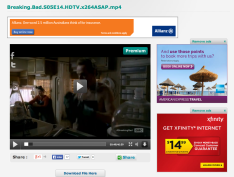 Allianz: Allianz’s media agency MEC said they did not buy the ad, but claimed it was a case of adnesting. Timothy Whitfield, general manager operations director at Xaxis said: “The one we saw yesterday ad nesting is where they nested this particular ad in seven layers of iframes and they were hiding behind a nefarious website. Allianz
Allianz: Allianz’s media agency MEC said they did not buy the ad, but claimed it was a case of adnesting. Timothy Whitfield, general manager operations director at Xaxis said: “The one we saw yesterday ad nesting is where they nested this particular ad in seven layers of iframes and they were hiding behind a nefarious website. Allianz
“Every man and his dog blocks these websites Watchseries.it, Videoweed etc. but because you’re seven layers deep you don’t know which one your block or not. That’s the problem that exists in the market today due to adfraud.”
 American Express: American Express’s media agency Mindshare said it did not buy the ad but that it was a case of photoshopping. Timothy Whitfield, general manager operations director at Xaxis:
American Express: American Express’s media agency Mindshare said it did not buy the ad but that it was a case of photoshopping. Timothy Whitfield, general manager operations director at Xaxis:
“People who go to Watchseries.it or any number of these websites see what appears to be banner advertising,” said Whitfield.
“Now when we dug into it what happened is that in some cases they were using basic photoshopping skills to take an old creative from Amex and building it into the homepage and into the video leads and on the homepage of the website.
“It wasn’t a real creative it was just someone who had photoshopped it into the site. Now the reason that we think they were doing that is that they were working very hard to make themselves look like a reputable website.”
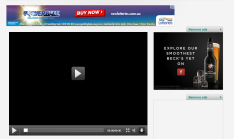 Becks: A spokeswoman for parent company Lion said: “I can confirm for you that Lion was not involved in this placement, however we are actively investigating the source.”
Becks: A spokeswoman for parent company Lion said: “I can confirm for you that Lion was not involved in this placement, however we are actively investigating the source.”
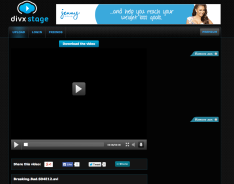 Jenny Craig: The weight loss brand and its media agency PHD declined to comment.
Jenny Craig: The weight loss brand and its media agency PHD declined to comment.
 Hotels Combined: Kristen McKenzie, global PR and content manager, Hotels Combined said: “HotelsCombined engages in the services of a leading retargeting provider which accesses a large network inventory – what happens is that once someone has visited our site, our banner ads can then “follow” that individual to other sites that they visit. Retargeting is an essential online marketing tool that many major businesses now employ and which has become common Internet advertising practice.
Hotels Combined: Kristen McKenzie, global PR and content manager, Hotels Combined said: “HotelsCombined engages in the services of a leading retargeting provider which accesses a large network inventory – what happens is that once someone has visited our site, our banner ads can then “follow” that individual to other sites that they visit. Retargeting is an essential online marketing tool that many major businesses now employ and which has become common Internet advertising practice.
“Our retargeting provider does not disclose their extensive list of networks, and with millions of different sites being accessed simultaneously in real time, it is ultimately impossible for us to police where retargeting may occur.
“As mentioned, we’re naturally unhappy to see our name and logo on these kinds of sites, and we will definitely be reporting these sites to our retargeting provider. However, due to the nature of today’s online advertising, these sort of incidents do regrettably occur and despite our very best efforts, it’s unavoidable that our ads will continue to occasionally find their way onto unsavoury sites.”
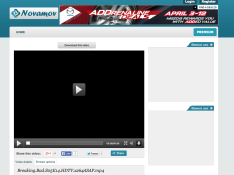 Mazda:Mazda and its media agency OMD declined to comment.
Mazda:Mazda and its media agency OMD declined to comment.
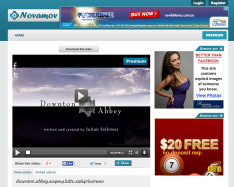 NSW Lotteries: Gabriela Merrick, managing director, Carat Brisbane said: “We are aware that approximately 300 impressions of advertising for NSW Lotteries has appeared on an illegal television download website.
NSW Lotteries: Gabriela Merrick, managing director, Carat Brisbane said: “We are aware that approximately 300 impressions of advertising for NSW Lotteries has appeared on an illegal television download website.
“We have very strict policies on placing and monitoring online advertising for all our clients, and were able to rectify the situation quickly on behalf of NSW Lotteries.
“We will continue to work with all our media partners to ensure that these sort of situations are minimised and are always dealt with in a most efficient manner.”
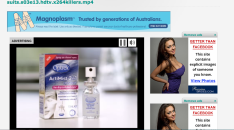 Reckitt Benckiser: A spokesman said: “These ads are placed without our authorisation or knowledge. RB will not pay for ads placed on unauthorised sites and takes action to remove them as soon as we become aware of infringement. Unfortunately, whilst we do our utmost to ensure tour ads do not appear on illegal or unsavoury websites, it is impossible to control.”
Reckitt Benckiser: A spokesman said: “These ads are placed without our authorisation or knowledge. RB will not pay for ads placed on unauthorised sites and takes action to remove them as soon as we become aware of infringement. Unfortunately, whilst we do our utmost to ensure tour ads do not appear on illegal or unsavoury websites, it is impossible to control.”
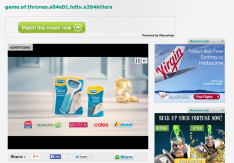 Virgin Australia: A Virgin Australia spokesman said: “We have strict guidelines around ad placement, including the avoidance of any sites that may contain adult, gambling and other illegal content such as torrent sites.
Virgin Australia: A Virgin Australia spokesman said: “We have strict guidelines around ad placement, including the avoidance of any sites that may contain adult, gambling and other illegal content such as torrent sites.
“We continue to review our processes to avoid ads appearing on such sites and the ad placement on the site in question has been removed.
“We sincerely apologise for any offence caused and are currently investigating this further.”



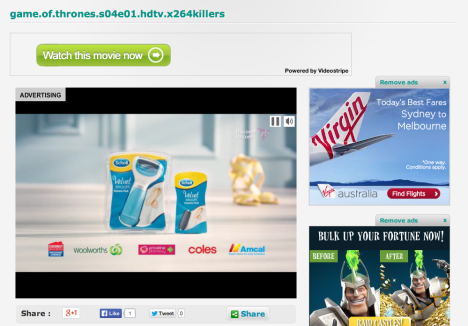
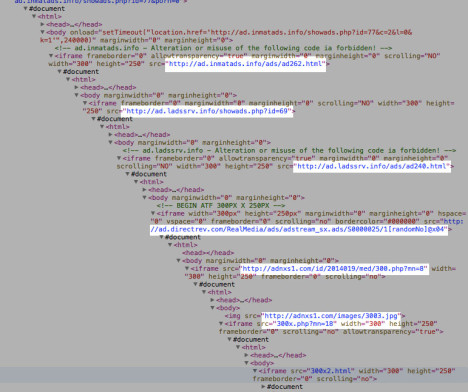

‘photoshopped’ the ad. right
User ID not verified.
On a side note…
“Australia retained its place at the top of the list of the world’s biggest piraters”
Wonder if this correlates with Australians being duped into paying higher rates for the same digital content than our overseas counterparts?
Whilst not a supporter of pirating, perhaps there is karma at work?
User ID not verified.
Again, worth noting that HBO Programming President views it as a positive:
http://insidetv.ew.com/2013/03.....es-piracy/
User ID not verified.
Foxtel have stopped Game of Thrones being sold on iTunes after the episode airs, they think this will lead to more subscribers but it will just lead to more illegal downloads. A lot of people are happy to pay for shows and don’t want to be forced in to getting Foxtel.
User ID not verified.
Hahahah ‘investigation by Mumbrella’, you were watching it on those pirated sites just like everybody else!!!
User ID not verified.
Yeah the photoshopped story is just plain bullocks! Really…
User ID not verified.
there is a solution to all this. brand safety monitoring technologies can monitor and report on nested iframes. thing is there is limited will on the trading desk side to do anything that will constrict supply.
User ID not verified.
Its not “AdNexus” its “AppNexus”…
User ID not verified.